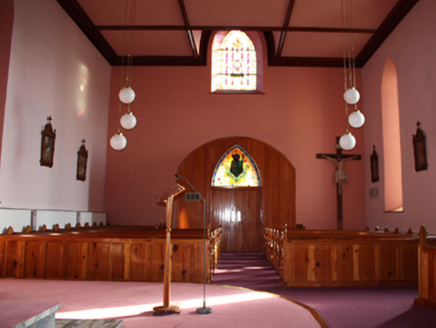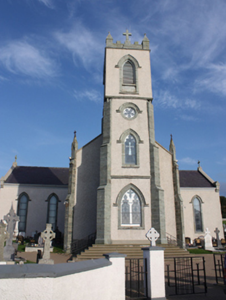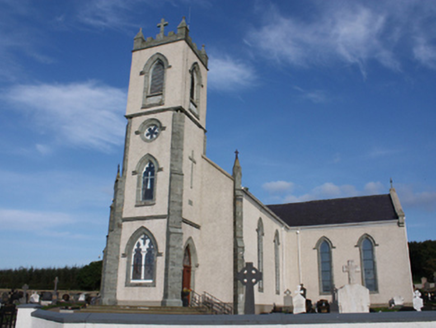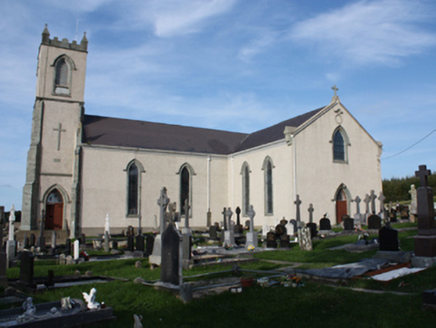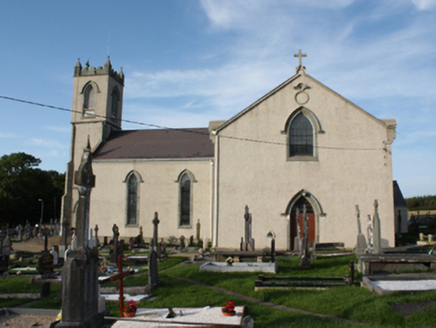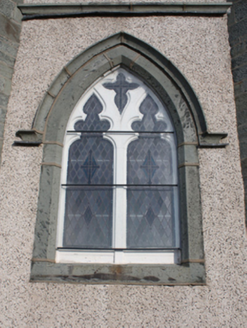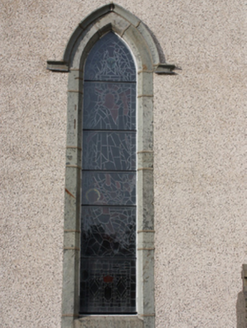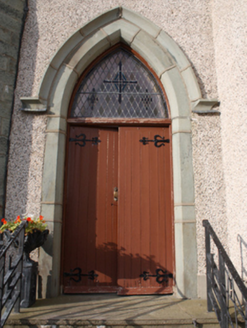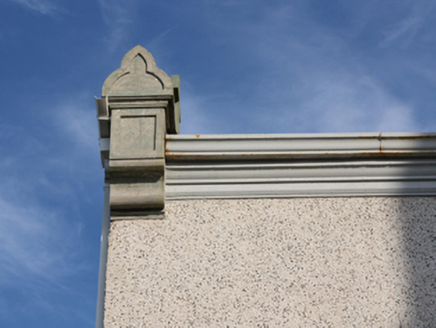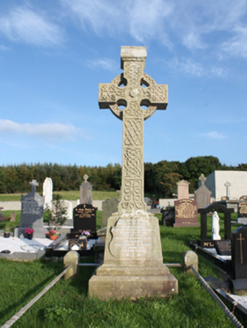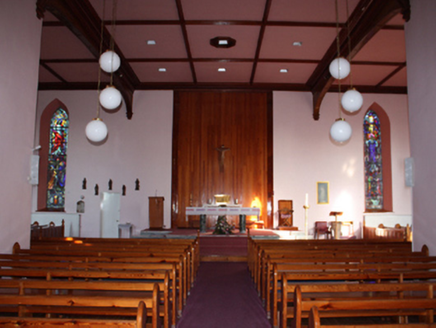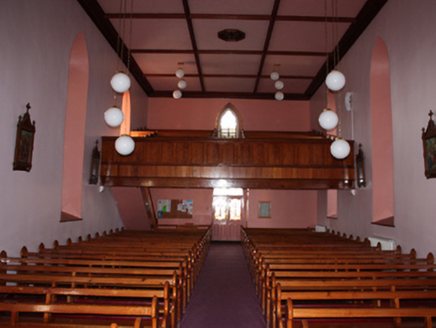Survey Data
Reg No
40901201
Rating
Regional
Categories of Special Interest
Architectural, Artistic, Social
Original Use
Church/chapel
In Use As
Church/chapel
Date
1820 - 1830
Coordinates
253988, 447875
Date Recorded
23/09/2008
Date Updated
--/--/--
Description
Detached three-bay T-plan Catholic church, built 1824, with four-stage tower to west, extended c. 1848, projecting vestry to east. Pitched purple slate roof with ashlar copings and carved skew-ends to gable-parapets, cast-iron rainwater goods and stucco cornice eaves courses; brick chimneystack to vestry. Roughcast rendered walls with ashlar green limestone diagonal buttresses with cast-iron finials to west end, buttresses culminating in colonnettes to tower, ashlar moulded stringcourses to tower. Date-stone to tower reads ‘1836-1936’. Pointed-arch lancet window openings with green limestone ashlar surrounds, hoodmouldings and sills; leaded stained and coloured glass windows; timber louvers to bell chamber of tower. Pointed-arch headed door opening with battened timber double doors with decorative hinges and coloured-glass fanlight. Set within own grounds with graveyard surrounding containing memorial tablets and crosses to graves. Roughcast rendered boundary wall and piers with smooth rendered coping and modern painted steel gates. Timber ribs to coffers of suspended ceiling, timber balustrade to choir-loft, elliptical chancel and aisle arches clad in timber panelling.
Appraisal
An impressive parish church, with a dramatic belfry tower, that has been added to and extended since its foundation as needs required and resources permitted. It is a significant landmark in the region and constitutes an attractive addition to the largely rural landscape of the area. Its high quality finishes, fine proportions and scale combine to create a most handsome structure, whilst the survival of intrinsic architectural details and the retention of integral architectural fabric, make it a valuable addition to the architectural heritage of the area. The church and its associated graveyard are also of significance as having long served as an important part of the local community’s religious and social life.
